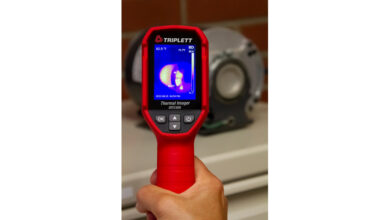New, Cost-Saving Energy Efficiency Standards Proposed for Commercial Water Heaters
The U.S. Department of Energy has proposed new energy-conservation standards for commercial water heating equipment, including gas storage, instantaneous water heaters and gas hot water supply boilers.
The proposed standards would require commercial water heaters to incorporate condensing technology, which significantly reduces energy consumption by extracting additional heat from the combustion process. Energy efficiency is a key component of President Biden’s plan to reduce climate pollution while delivering savings.
“Water heating accounts for a considerable share of energy costs and domestic carbon emissions,” said Kelly Speakes-Backman, principal deputy assistant secretary for Energy Efficiency and Renewable Energy. “Modernizing commercial water heater technology will slash energy costs for schools, hospitals and small businesses, while removing carbon and methane from our atmosphere.”
If finalized, the proposed standards would save businesses and operators $140 million per year in operating costs. Over the next 30 years, the new standards are projected to generate $2.4 billion in savings, with an average lifecycle cost savings of $301 for a commercial building operator of a gas-fired storage water heater.
According to the Energy Information Administration, gas water heating accounts for 18% of natural gas consumption in commercial buildings, which is primarily driven by inefficient, noncondensing water heating equipment that allows excess heat to escape.
In addition to the projected 30-year cost savings, the new standards will reduce carbon emissions by an amount equivalent to the annual emissions of 4.8 million homes. The new standards will also cut methane emissions by an amount equivalent to the annual emissions of 2.3 million gasoline cars.
If implemented within DOE’s proposed timeframe, the new standards would come into effect in 2026. For further information, contact the Appliance and Equipment Standards Program staff at ApplianceStandardsQuestions@ee.doe.gov.


